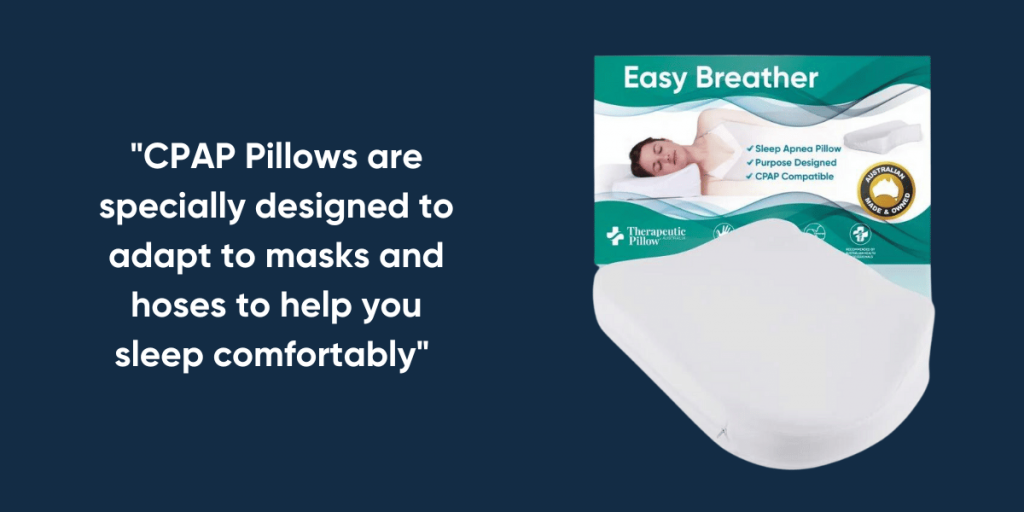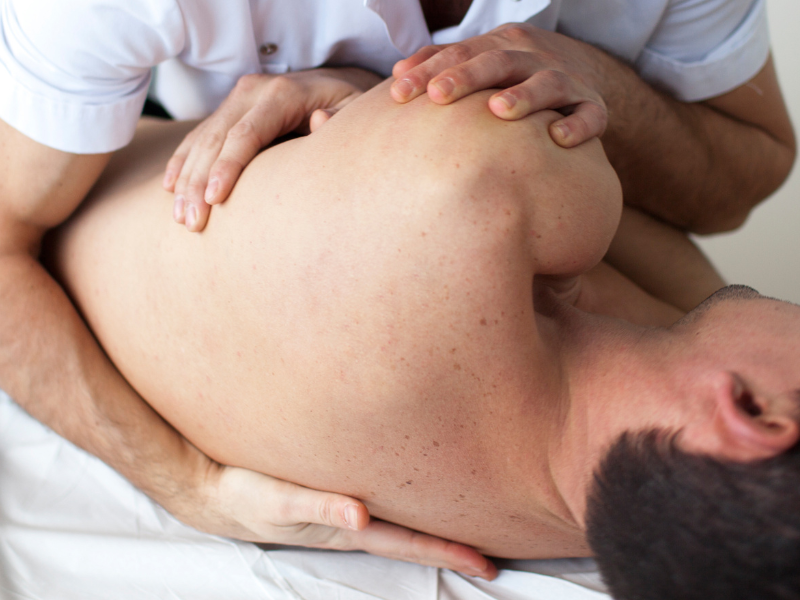A peaceful night's sleep is a precious gift, one that rejuvenates both body and mind.
Yet, for millions of people worldwide, this nightly ritual is disrupted by a silent but potentially serious condition known as sleep apnea.
The good news is that innovative solutions, like CPAP pillows, can make a world of difference for those dealing with this challenge. In this comprehensive guide, we'll delve into the intricacies of sleep apnea, explore its impact on your health, and discover how CPAP pillows can be a game-changer in achieving restful, uninterrupted sleep. So, let's embark on this journey to unlock the mystery of sleep apnea and explore how these remarkable pillows can transform your slumber.
Deciphering Sleep Apnea
The Sleep Apnea Enigma
Sleep apnea is a sleep disorder characterized by repeated interruptions in breathing during sleep. These pauses, known as apneas, can last from a few seconds to minutes and may occur dozens of times per hour. The most common type of sleep apnea is obstructive sleep apnea (OSA), which happens when the muscles in the back of your throat relax excessively, causing a blockage of the airway.

Signs and Symptoms of Sleep Apnea
Recognizing sleep apnea's symptoms is vital for early diagnosis and treatment. Some common signs include:
- Loud Snoring: Frequent, loud snoring is often a telltale sign of sleep apnea.
- Choking or Gasping: Sudden awakenings with choking or gasping for breath are typical during apnea episodes.
- Excessive Daytime Sleepiness: Individuals with sleep apnea often feel excessively tired during the day, leading to reduced alertness and productivity.
- Morning Headaches: Waking up with a headache is another common symptom.
- Difficulty Concentrating: Memory and concentration problems may arise due to sleep deprivation.
- Irritability: Sleep apnea can contribute to mood swings and irritability.
The Consequences of Untreated Sleep Apnea
Sleep apnea isn't just a nuisance; it can have severe consequences on your health and overall well-being. Untreated sleep apnea has been linked to a range of health issues, including:
- Cardiovascular Problems: Sleep apnea increases the risk of high blood pressure, heart attack, stroke, and irregular heartbeats.
- Daytime Fatigue: Chronic sleep deprivation can impair your ability to concentrate, leading to accidents at home, work, or while driving.
- Type 2 Diabetes: Sleep apnea is associated with insulin resistance, increasing the risk of developing diabetes.
- Weight Gain: Sleep apnea and obesity often go hand in hand, creating a vicious cycle that can be challenging to break.
- Mood Disorders: Irritability, depression, and anxiety are common in individuals with untreated sleep apnea.
CPAP Therapy to have a restful night
The CPAP Solution
Continuous Positive Airway Pressure (CPAP) therapy is a gold standard in treating sleep apnea. It involves using a CPAP machine that delivers a continuous stream of air pressure to keep your airway open during sleep. This prevents apneas and allows for uninterrupted breathing throughout the night.
The Challenge of CPAP
While CPAP therapy is highly effective, it comes with its own set of challenges. The CPAP machine itself can be bulky, noisy, and uncomfortable. One of the most common discomforts faced by CPAP users is the struggle to find a comfortable sleeping position while wearing the mask and keeping the tubing in place.

The Role of CPAP Pillows
Introducing CPAP Pillows
Enter CPAP pillows, specially designed to address the unique needs of CPAP therapy users. These pillows are crafted with features that accommodate the CPAP mask, tubing, and the user's comfort.
Key Features of CPAP Pillows
- Contoured Design: CPAP pillows often feature a contoured shape, providing better support for the head, neck, and shoulders. This design helps maintain proper alignment, reducing the risk of mask leakage and discomfort.
- Cutout or Recess: Many CPAP pillows incorporate a cutout or recess to accommodate the CPAP mask, allowing it to sit comfortably without pressing against your face.
- Enhanced Airflow: Some CPAP pillows have airflow channels or mesh panels that help dissipate heat and moisture, preventing discomfort caused by overheating.
- Adjustable Height: Users can often adjust the pillow's height to find the perfect position that aligns with their CPAP mask, ensuring a snug fit and minimal air leakage.
- Memory Foam: Memory foam is a popular choice for CPAP pillows as it moulds to the contours of your head and neck, providing personalized comfort and support.
- Hypoallergenic Materials: Many CPAP pillows are made from hypoallergenic materials to minimize the risk of allergies or skin sensitivities.
How CPAP Pillows Benefit Sleep Apnea Patients
Improving Comfort and Compliance
One of the primary challenges faced by CPAP users is maintaining compliance with their therapy. Discomfort and mask leakage often lead to interrupted sleep, reducing the effectiveness of CPAP therapy. CPAP pillows address these issues by:
- Enhancing Comfort: The contoured design and memory foam construction of CPAP pillows ensure a comfortable and supportive sleeping experience.
- Reducing Mask Leakage: The cutout or recess in CPAP pillows prevents the mask from shifting, minimizing air leakage and ensuring a secure fit throughout the night.
- Preventing Pressure Sores: By distributing pressure evenly, CPAP pillows help reduce the risk of pressure sores or discomfort on the face and cheeks.
- Improving Sleep Quality: With improved comfort and reduced mask movement, CPAP users experience less sleep disruption, leading to better overall sleep quality.
Tips for Choosing the Right CPAP Pillow
Selecting the Perfect CPAP Pillow
Finding the right CPAP pillow can significantly enhance your CPAP therapy experience. Here are some tips to consider when choosing the perfect CPAP pillow:
- Mask Compatibility: Ensure the CPAP pillow is compatible with your specific CPAP mask type and size.
- Comfort: Opt for a pillow with materials that suit your comfort preferences, whether it's memory foam, latex, or another type.
- Size and Shape: Consider the size and shape of the CPAP pillow to ensure it fits your sleeping position and preferences.
- Adjustability: Some CPAP pillows offer height adjustability, allowing you to customize the pillow to your liking.
- Hypoallergenic Properties: If you have allergies or sensitivities, choose a CPAP pillow made from hypoallergenic materials.
- Maintenance: Check if the CPAP pillow is easy to clean and maintain for long-lasting use.
Embrace Restorative Sleep with CPAP Pillows
A Brighter Tomorrow with CPAP Pillows
Sleep apnea need not cast a shadow over your nights. With the aid of CPAP therapy and specially designed CPAP pillows, you can embrace restorative sleep that rejuvenates both your body and mind. These innovative pillows are more than just accessories; they are
Sleep apnea is a common sleep disorder that affects many people worldwide. While it cannot be completely cured, it can be effectively managed and controlled with appropriate treatment. Sleep apnea is characterized by pauses in breathing or shallow breaths during sleep, leading to disrupted sleep patterns and daytime fatigue.
The most common treatment for sleep apnea is continuous positive airway pressure (CPAP) therapy. This involves wearing a mask over the nose or mouth during sleep, which delivers a constant flow of air to keep the airways open. Other treatment options include lifestyle changes, such as weight loss and avoiding alcohol and sedatives before bedtime. In some cases, surgery may be recommended to remove excess tissue or correct structural abnormalities in the airways.
It's important to remember that sleep apnea is a chronic condition that requires ongoing management. With the right treatment and lifestyle adjustments, individuals with sleep apnea can experience significant improvement in their symptoms and overall quality of sleep. If you suspect you may have sleep apnea, it is advisable to consult a healthcare professional for a proper diagnosis and personalized treatment plan.
 0
0 0
0Sleep apnea is a sleep disorder that causes interruptions in breathing during sleep. It can lead to daytime fatigue, loud snoring, and other health issues. Treating sleep apnea typically involves a combination of lifestyle changes, medical interventions, and the use of devices.
One effective way to manage sleep apnea is by making certain lifestyle adjustments. Maintaining a healthy weight, exercising regularly, and avoiding alcohol and sedatives can help reduce symptoms. Additionally, sleeping on your side instead of your back and keeping your nasal passages clear can improve breathing during sleep.
Medical interventions may also be necessary to treat sleep apnea. Continuous positive airway pressure (CPAP) therapy is a common treatment method. It involves wearing a mask over your nose or mouth while you sleep, which delivers a steady stream of air to keep your airways open. Other options include oral appliances that help keep the airway open or surgery to remove excess tissue blocking the airway.
Managing sleep apnea involves a combination of lifestyle changes, medical interventions, and the use of devices. By adopting healthy habits, seeking medical advice, and exploring treatment options, individuals with sleep apnea can improve their sleep quality and overall well-being.
 0
0 0
0Sleep apnea is a common sleep disorder that affects breathing during sleep. It occurs when a person's airway becomes partially or completely blocked, leading to pauses in breathing or shallow breaths. These interruptions can happen multiple times throughout the night, disrupting the normal sleep cycle and causing various symptoms.
People with sleep apnea often experience excessive daytime sleepiness, loud snoring, and frequent awakenings during the night. They may also wake up with a dry mouth or headache. Sleep apnea can have serious health consequences if left untreated, including an increased risk of high blood pressure, heart disease, and stroke.
If you suspect you or someone you know may have sleep apnea, it is important to consult a healthcare professional for a proper diagnosis and treatment options. Treatment may involve lifestyle changes, such as weight loss or sleeping in a different position, as well as the use of a continuous positive airway pressure (CPAP) machine or other devices to help keep the airway open during sleep. Managing sleep apnea can greatly improve sleep quality and overall well-being.
 0
0 0
0







